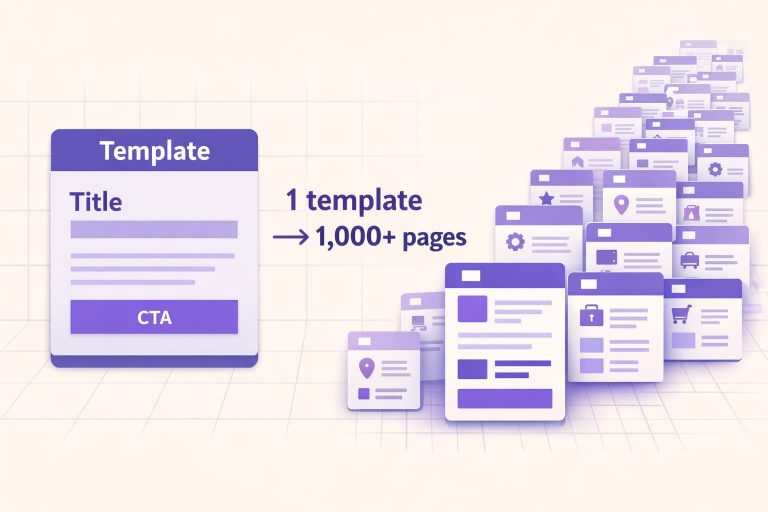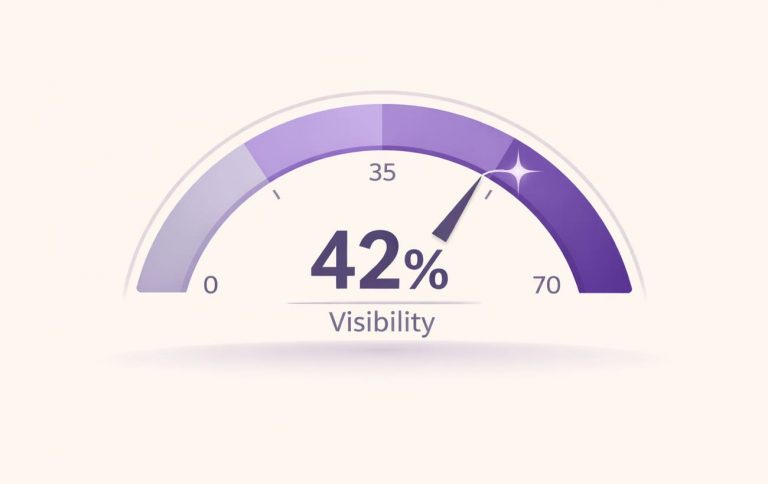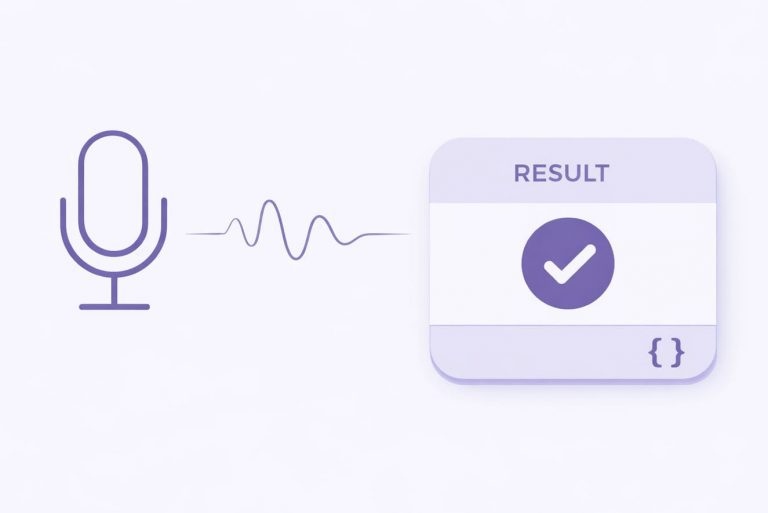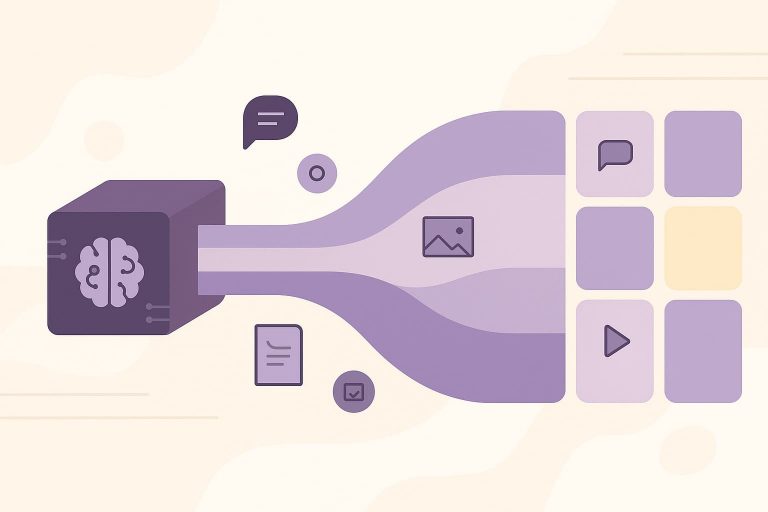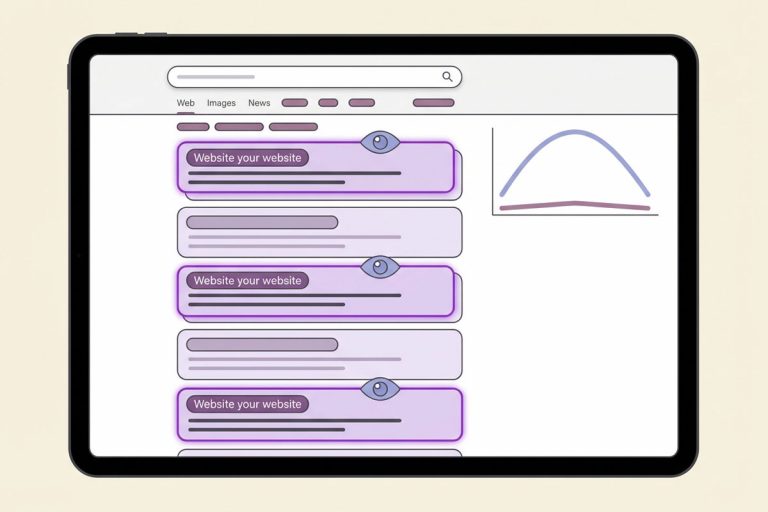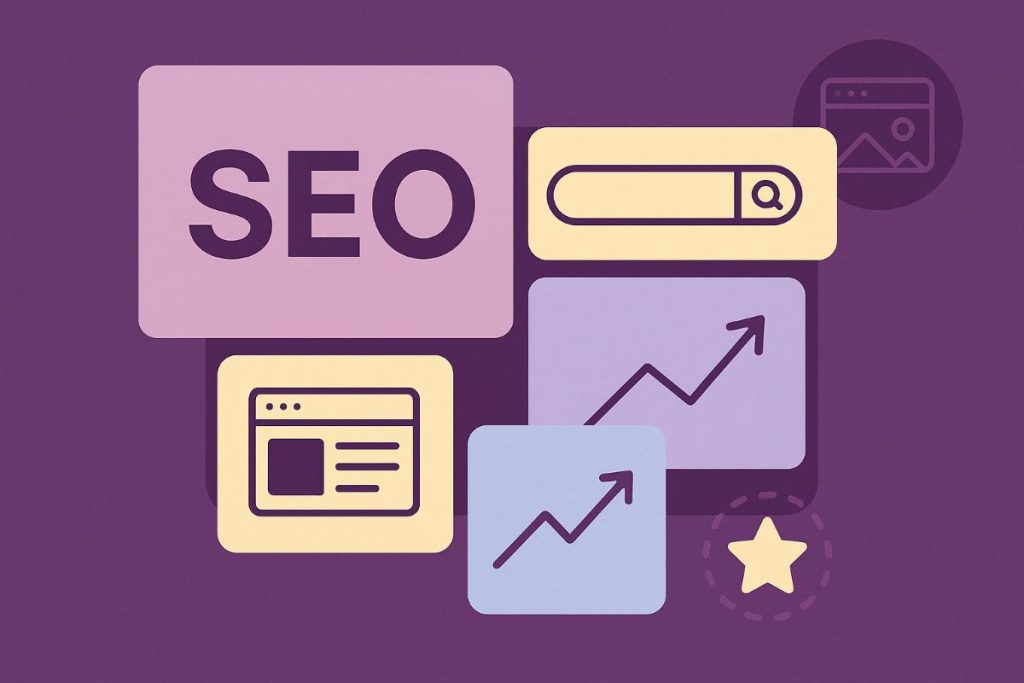
- 2025 Reality Check
- The Evolution of SEO: How We Got Here
- Signs of Life: What's Working in SEO Today
- The Shift from Keywords to User Experience
- The Real Threats to Traditional SEO
- Search Fragmentation Across Platforms
- LeadCraft's Approach: Enterprise SEO That Delivers Results
- Adapting Your SEO Strategy for 2025 and Beyond
- Visual and Voice Search Optimization
- Conclusion: SEO Isn't Dead—It's Evolving (And So Should You)
- FAQ
Every few months, someone declares SEO dead. Again. Usually right after an algorithm update tanks their traffic, or when they realize their 2019 playbook stopped working.
Here’s the uncomfortable truth: if your SEO strategy feels broken right now, it probably is. But not because SEO died — because you’re still playing by rules that expired years ago. While you’ve been optimizing for keywords and chasing backlinks, search itself fundamentally changed. AI answers, zero-click results, multi-platform discovery — the game moved, and most strategies didn’t.
2025 Reality Check
Let’s cut through the noise: SEO isn’t dead. But if you’re still optimizing like it’s 2019, your results probably are.
The “is seo dead” question surfaces after every major algorithm update. What’s actually happening? Search engine optimization is undergoing its most dramatic transformation since Google launched. AI search engines are reshaping discovery. Zero-click searches now account for over 50% of queries. Your audience searches on TikTok, ChatGPT, and Reddit as much as Google.
But here’s the data: Organic search still drives 53% of all website traffic. Companies investing in modern SEO strategies see an average ROI of 748%. The businesses crushing it aren’t abandoning SEO — they’re evolving their approach.
The real story isn’t about SEO dying. It’s about a fundamental shift in how SEO drives results. The opportunity for businesses that adapt is bigger than ever.
Key Takeaways:
- SEO is transforming, not dying — organic search still drives majority web traffic.
- AI-powered search and multi-platform discovery are reshaping strategy requirements.
- Traditional keyword-stuffing tactics are obsolete, but strategic SEO delivers higher ROI than ever.
- Success requires user experience focus, E-E-A-T standards, and cross-platform optimization.
- Businesses evolving their approach see 60%+ traffic increases within months.
The Evolution of SEO: How We Got Here
SEO has survived more death predictions than a comic book superhero. Each time, the SEO industry adapted and came out stronger.
Google’s Panda update in 2011 targeted low-quality content farms. Penguin update followed in 2012, attacking manipulative link schemes. Mobile-first indexing in 2018 forced another evolution. Core Web Vitals in 2021 made page experience a ranking factor.
Here’s the pattern: Google algorithm updates keep raising the bar on quality and user experience. The SEO tactics that die are shortcuts and hacks. What thrives is making content discoverable, valuable, and trustworthy.
The businesses that weathered every algorithm storm focused on creating genuinely helpful content, building real authority, and prioritizing user experience. That approach worked in 2011, works in 2025, and will work in 2035.
The Great SEO Panic: Why People Keep Declaring SEO Dead
The “SEO is dead” narrative follows a predictable pattern. A major update hits. Some sites crash. Panic spreads.
Look at who’s making these claims: agencies selling alternatives, or businesses that never adapted past 2015 tactics. Change is uncomfortable. It’s easier to declare something dead than to admit you need to update your skills.
The market factors matter too. If an agency can convince you traditional SEO is finished but their proprietary approach works, they’ve differentiated themselves. Fear sells.
Watch what successful businesses actually do. Companies generating millions in organic revenue aren’t abandoning SEO — they’re evolving it.
Signs of Life: What's Working in SEO Today
A B2B software company implemented modern SEO strategies in early 2024. Within eight months, organic traffic increased 184%. Qualified leads from organic search grew 217%, with customer acquisition cost 68% lower than paid channels.
Industry data backs this up. Google still dominates with 83.54% of online searches. Organic search drives 10x more traffic than social media. AI chatbots like ChatGPT are complementing traditional search, not replacing it.
These businesses aren’t keyword-stuffing or building spammy backlinks. They’re focusing on search intent, creating genuinely useful content, optimizing Core Web Vitals, and building topical authority.
One enterprise client grew from 12,000 to 47,000 monthly organic visitors. They built comprehensive content hubs around core expertise, improved page speed from 2.8 to 1.1 seconds, and rewrote product pages to match search intent.
Does seo still work? The data screams yes — if you’re willing to do it right.
Traffic Metrics Comparison Table:
| Metric | Outdated SEO | Modern SEO |
|---|---|---|
| Monthly Organic Traffic | 8,500 | 32,000 |
| Conversion Rate | 0.8% | 3.2% |
| Page Load Time | 4.2s | 1.3s |
| Featured Snippets | 2 | 23 |
| Qualified Leads/Month | 68 | 1,024 |
The Shift from Keywords to User Experience
Google stopped caring about keyword density years ago. Now it’s obsessed with whether users actually get what they came.
- Largest Contentful Paint (LCP) measures how quickly your main content loads.
- Interaction to Next Paint (INP) tracks responsiveness when users click or tap.
- Cumulative Layout Shift (CLS) penalizes pages where content jumps around while loading.
These aren’t just technical metrics — they’re Google’s way of quantifying whether your site frustrates or satisfies users.
Mobile-first indexing flipped the script entirely. Google now ranks based on your mobile experience, even for desktop searches. If your site is slow or broken on mobile, your desktop version doesn’t matter. Site speed isn’t a bonus — it’s table stakes. Page experience signals now carry as much weight as your content quality and backlinks.
User search intent matters more than keyword placement. A page that loads in 1.2 seconds and answers the query outranks a slower page with perfect keyword optimization. Google’s algorithm learned what we should have known all along — users care about getting answers without waiting or clicking through terrible experiences.
Content Quality and E-E-A-T in the AI Era
AI content flooded the web in 2023-2024. Google’s response? Double down on E-E-A-T — a framework from their Search Quality Evaluator Guidelines that measures Expertise, Experience, Authoritativeness, and Trustworthiness.
Experience is the newest addition, and it’s the killshot for generic AI content. Google now prioritizes content written by people who’ve actually done the thing they’re explaining. Not theorizing about SEO strategy — implementing it on real projects. Not explaining how to fix Core Web Vitals — showing the before/after data from sites you’ve optimized.
Concrete E-E-A-T signals include: author bylines with verifiable credentials and LinkedIn profiles, citations to original research and authoritative sources (not just linking to other SEO blogs), case studies with specific metrics and outcomes, mentions and backlinks from recognized industry publications, and demonstration of first-hand experience through specific details only practitioners would know.
Here’s the balance with AI content: use AI for efficiency in research, outlining, and first drafts. But the final content needs human expertise injected throughout — proprietary frameworks, contrarian insights, specific implementation details, and real examples from your work.
Make Your Content Easy for AI to Cite
ChatGPT, Claude, and other Large Language Models now cite sources when generating answers. Tools like Semrush’s AI SEO Toolkit and Similarweb’s AI Chatbot Traffic track which sites get referenced most. Authorities research shows AI-friendly content gets cited 3-4x more frequently than traditional formats.
AI search engines scan content differently. Semantic search algorithms prioritize scannable formats and conversational content that matches how people ask questions.
Key strategies for AI citation:
- Use H2 headers phrased as questions. Follow with concise 50-75 word answers. LLMs extract these question-answer pairs easily.
- Include phrases like “how to,” “what’s the difference between,” “why does” — matching voice search and AI chat interfaces.
- Present comparisons and metrics in table format. AI parses structured data from tables more accurately than extracting numbers from text.
- Implement FAQ schema, HowTo schema, Article schema. Google’s structured data gives AI explicit signals about content structure and relationships.
- Short paragraphs, descriptive subheadings, bold key terms. Clear content structure helps both humans and algorithms navigate efficiently.
- Content optimized for AI citation appears in ChatGPT responses, Claude outputs, and Google’s AI Overviews — reaching audiences beyond traditional search results.
AI-Friendly Content Transformation
| Before: Traditional Format | After: AI-Friendly Format |
|---|---|
| Headline | Clear H2 question header |
| Introduction paragraph | Concise answer (50-75 words) |
| Long body text | Supporting data table/list |
| Conclusion | Example/case study |
| Key takeaway in bold | |
| Related questions as H3s |
The Real Threats to Traditional SEO
Let’s be honest about the SEO challenges facing old playbooks. Google’s Search Generative Experience, ChatGPT, Claude, and other AI search engines are driving real search disruption. Zero-click searches are up. Traditional organic listings get pushed down by featured snippets, knowledge panels, and AI-generated answers.
The future of SEO isn’t about whether organic search survives — it’s about how SEO is changing to adapt. Some traditional tactics are legitimately less effective now. Publishing thin content at scale? Dead. Building links through blog comment spam? Dead. Keyword stuffing? Dead and buried. These tactics deserved to die — they were always manipulations rather than value creation.
But here’s the critical distinction: bad SEO tactics are dying. Strategic, user-focused SEO is evolving. How SEO has changed in the past year alone is dramatic — AI overviews reshaping SERPs, E-E-A-T becoming mandatory, multi-platform search fragmenting traffic. Yet the core opportunity remains unchanged: connecting people searching for solutions with businesses that provide them.
AI-Generated Answers and Zero-Click Searches
Over 50% of Google searches now end without a click. Featured snippets, knowledge panels, and AI overviews answer questions directly on search results. Google’s Search Generative Experience synthesizes answers from multiple sources. Users get information without clicking through.
Companies that navigate this landscape successfully optimize for featured snippets, craft content that drives clicks, build brand awareness so users recall them when they need services, target transactional keywords where clicks still occur, and focus on overall visibility and brand presence.
Search Fragmentation Across Platforms
Younger users search on TikTok for product recommendations. Professionals find answers on Reddit and Quora. Shoppers start on Amazon. Voice assistants field millions of queries. ChatGPT has become a search interface.
Google dominates with over 83% market share, but that’s down from 92% five years ago. And percentages don’t capture full discovery behavior. A 24-year-old searching for skincare might start on TikTok, verify on Reddit, check prices on Amazon, and only then search Google. Traditional Google-only SEO misses 75% of that journey.
Search fragmentation means optimizing video for YouTube and TikTok discovery, having presence on Reddit and Quora, ensuring products show up on Amazon and Walmart — being discoverable where your audience actually searches.
LeadCraft's Approach: Enterprise SEO That Delivers Results
While others debate whether SEO is dead, Lead Craft has been proving it’s more valuable than ever.
Since 2020, Lead Craft has specialized in transforming organic visibility into measurable revenue for ambitious companies. We are proud of a comprehensive service cover:
- Technical SEO for performance, Enterprise SEO for complex implementations,
- International SEO (GEO) for global markets,
- Content strategy and creation that ranks and converts,
- Strategic link building,
- Conversion Rate Optimization,
- Search Engine Reputation Management.
Our approach is built on a scientific framework, not guesswork. We start with data-driven discovery — mapping your technical infrastructure, entity relationships, and semantic authority gaps that competitors exploit.
Next comes strategic prioritization, where every recommendation is filtered through one question: what’s the ROI? We build entity-first content strategies and technical roadmaps ranked by business impact, not vanity metrics.
During precision execution, we ship fast and iterate based on real data — optimizing entity associations through structured data, building topical authority with semantic clusters, and handling engineer-level technical complexity.
Finally, continuous optimization means we scale what works and kill what doesn’t, tracking every initiative against revenue outcomes while expanding your semantic territory.
This methodology has driven 340% average growth in qualified organic leads because it combines technical excellence with entity-based SEO and relentless focus on measurable business impact.
Results: 50,000+ qualified leads delivered monthly, 120+ complex projects completed, 10+ years collective experience, 94% client retention rate.
Lead Craft proves: Traffic + Conversion = Sales. Despite SEO’s evolution, that formula works better than ever for companies willing to adapt.
Adapting Your SEO Strategy for 2025 and Beyond
Businesses winning at SEO today share common approaches: building comprehensive topical authority that AI models recognize, prioritizing user experience as foundational, creating content demonstrating genuine expertise (the kind LLMs actually cite), optimizing for multi-platform visibility across Google, ChatGPT, Perplexity, Claude, and other AI-powered search experiences, and measuring what matters — qualified traffic and revenue, not just rankings.
The framework starts with understanding where your audience actually searches. Map the full discovery journey across platforms — from traditional Google search to AI Overview citations, from ChatGPT recommendations to Perplexity answers. Your content needs to be optimized for both algorithmic crawlers and AI language models that parse semantic meaning and entity relationships.
Audit your current performance honestly. How are Core Web Vitals? Does content demonstrate real expertise? Are you visible in featured snippets and AI overviews?
Prioritize based on impact potential. Quick wins: fixing technical issues. Medium-term: content refresh for E-E-A-T. Long-term: building topical authority and expanding platforms.
One practical framework: 70% of resources go to core platform optimization (usually Google), 20% to high-potential secondary platforms (YouTube, Reddit), 10% to experimenting with emerging channels.
Test, measure, iterate. Modern SEO is continuous optimization, not set-it-and-forget-it.
Be Everywhere People Search (Search Everywhere Optimization)
Traditional “search engine optimization” is too narrow. Welcome to Search Everywhere Optimization.
Your strategy spans every discovery platform. Google: traditional algorithms, featured snippets, SGE visibility. YouTube: video SEO with titles, descriptions, transcripts. TikTok: short-form content matching trending searches. Amazon: product listing optimization. Reddit and Quora: establishing expertise.
This doesn’t mean spreading thin. Identify which 2-3 platforms matter most for your audience, build a strong presence there, then expand.
Content repurposing becomes crucial. That comprehensive blog guide? Extract insights for LinkedIn, create a video summary for YouTube, and answer related questions on Reddit.
Track performance across all platforms. Many businesses discover non-Google channels drive higher-quality leads.
The businesses asking “Is SEO now obsolete?” are thinking too narrowly. SEO isn’t just Google — it’s an omnichannel visibility strategy.
Platform-Specific Optimization Checklist:
- Google: Core Web Vitals optimization, featured snippet targeting, topical authority content, schema markup
- YouTube: Keyword-rich titles/descriptions, custom thumbnails, timestamps, optimized transcripts
- TikTok: Trending sounds/hashtags, front-load value in 3 seconds, keywords in captions, engage comments
- Amazon: Keyword product titles, full character descriptions, encourage reviews, competitor analysis
- Reddit: Genuine value not promotion, build karma first, consistent participation, find trending questions
Visual and Voice Search Optimization
Text-based search isn’t the whole story. Visual search through Google Lens and Pinterest Lens is growing. Voice search through Alexa, Siri, and Google Assistant handles millions daily.
Visual search optimization starts with high-quality images, descriptive file names, alt text, image schema markup, and image sitemaps.
Voice search optimization requires conversational thinking. Optimize by targeting conversational long-tail keywords, creating FAQ content matching natural speech, and ensuring fast load times.
Google My Business optimization directly impacts voice search results. When someone asks “find a dentist near me,” Google pulls from local business listings.
Leveraging AI Tools While Maintaining Your Edge
AI excels at several SEO tasks: keyword research at scale, content outline generation, competitor analysis, technical issue identification, and first-draft content generation.
But AI has clear limitations. It can’t match genuine expertise, struggles with original insights, doesn’t understand your specific business context, and can’t make strategic tradeoffs.
The winning approach: Use AI where it’s strong, humans for strategy and quality. AI generates keyword lists — humans decide which align with business goals. AI creates drafts — humans add expertise and insights.
Your competitors have the same AI tools. What they don’t have is your specific expertise, unique positioning, and strategic judgment. That’s your edge.
AI Tools for SEO Tasks:
- Keyword Research: ChatGPT/Claude for variations, Semrush for data-driven analysis, AnswerThePublic for questions
- Content Creation: AI for first drafts, human editing for expertise, Grammarly for quality
- Technical SEO: Screaming Frog for audits, PageSpeed Insights for performance, Schema generators
- Competitor Analysis: Ahrefs for backlinks, Similarweb for traffic insights, SpyFu for keyword tracking
Conclusion: SEO Isn't Dead—It's Evolving (And So Should You)
SEO isn’t dead; it’s evolving. It’s shifting from keyword tricks to strategic visibility—meeting users wherever they search or discover information. The evidence is clear: organic search still drives most web traffic, and modern SEO continues to deliver measurable ROI.
In 2025, SEO demands more sophistication than ever—technical excellence, real expertise, and constant adaptation. That’s not a burden; it’s a competitive advantage. Businesses abandoning SEO because “it’s not working” are missing the point. The winners are those who evolve with it, not against it. Your move: keep optimizing like it’s 2019 — or evolve to match how search truly works today.
Final Takeaways:
- SEO isn’t dying—it’s evolving rapidly. Businesses adapting see 60%+ traffic increases
- Focus on user experience and E-E-A-T. Technical performance and expertise are foundational
- Think beyond Google. Optimize across TikTok, YouTube, Reddit, Amazon, AI chatbots
- Use AI as a tool, not a replacement. Leverage automation for efficiency, humans for strategy
- Measure what matters. Track qualified traffic, pipeline, revenue—not just rankings
- Start evolving today. Competitive gap between modern vs. outdated SEO is widening fast
FAQ
Is SEO dead in 2025?
No. Traditional tricks like keyword stuffing are gone, but strategic SEO is stronger than ever. Organic search still drives over half of web traffic and offers top ROI. Success now means focusing on UX, E-E-A-T, multi-platform visibility, and AI-aware content.
Will SEO be replaced by AI?
AI is changing SEO, not replacing it. Tools like Google’s SGE and ChatGPT shift how people find information, but brands still need visibility across both AI answers and search results. AI makes SEO tasks faster — but human strategy and expertise remain vital.
What SEO strategies are still effective in 2025?
Winning strategies center on user experience, real expertise, and technical strength: optimize Core Web Vitals, build topical authority, earn featured snippets and AI citations, expand across platforms like YouTube or Reddit, and design for mobile-first discovery.
What's the impact of Google's Search Generative Experience (SGE) on SEO?
SGE may reduce clicks on informational queries, but it creates new visibility through source citations. Optimize for citation with clear, authoritative content, target transactional keywords where clicks still happen, and treat SGE presence as brand exposure.
How has SEO evolved in response to AI advancements?
SEO now emphasizes E-E-A-T, structured content for AI parsing, conversational keywords, and presence beyond Google — across chatbots and voice search. AI boosts efficiency, but human insight keeps SEO credible, strategic, and adaptable.














 530
530  15 min
15 min





 Share
Share
 X
X
 LinkedIn
LinkedIn
















